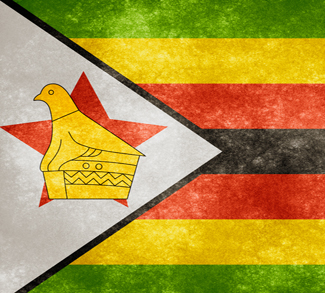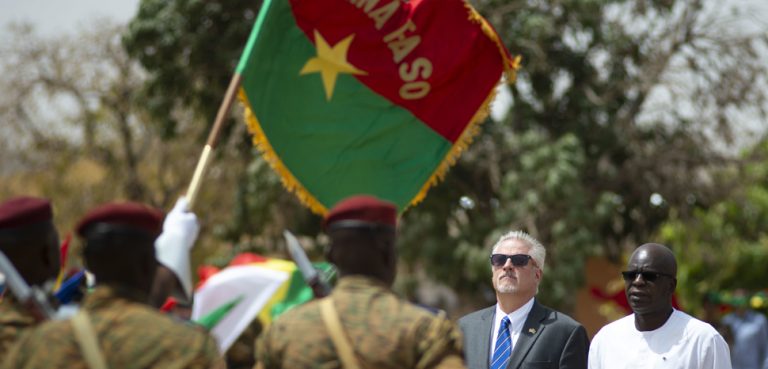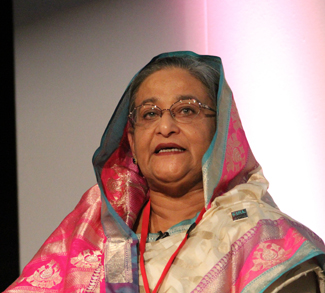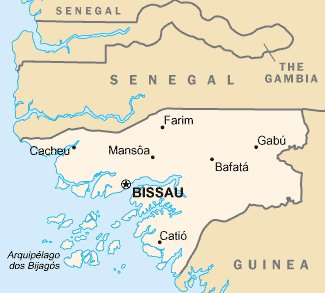Summary
Washington and London’s concerns about escalating violence amid Zimbabwe’s election crisis are being used as a pretext for regime change.
The increased funding of opposition groups and pressure on neighbouring countries to take action against President Mugabe indicate that regime change could soon occur. If successful, the neoliberal economic policies Mugabe rejected and the land reform measures he enacted could be re-instated and resolved by Washington and London under the guise of “democratic reform”.
Analysis
As President Mugabe continues to dispute Zimbabwe’s March 29 presidential and parliamentary election results that saw his ruling ZANU-PF party defeated for the first time by the opposition Movement for Democratic Change (MDC), there are growing international concerns about an escalation of violence, giving Washington and London a chance to launch a regime change.
The ZANU-PF’s arrest and torture of MDC members and their supporters, the attempted shipment of Chinese arms in April, and the reported presence of Chinese troops in Mutare have stoked fears and raised condemnation from the West. China, guided by its “non-interference” policy, claims the arms shipment was ordered by Mugabe long before the elections and that the West is politicizing the issue.
However China’s financial and military backing of the ZANU-PF dating back to the decade-long war against the white-minority government of Rhodesia (Zimbabwe’s former namesake) and Mugabe’s use of a North Korean trained brigade to crush political rivals in the early 1980s bolster belief that history will repeat itself.
On these grounds, the US and Britain are pushing for intervention in the region by criticizing, pressuring, and appealing to the South African Development Community’s (SADC) member states to take tough action against Mugabe, whom some in the region still view as a “liberation hero”. Washington and London have also pushed for Zimbabwe to be on the UN Security Council’s agenda while U.S. corporate owned media is fomenting calls to arm the opposition.
Away from the media’s glare, the US and British governments are funding the MDC (whose leader Morgan Tsvangirai fled to neighbouring Botswana in fear of his life), opposition groups, and civil society via NGOs like the National Endowment for Democracy (NED), US Institute for Peace (USIP), Albert Einstein Institute (AEI), and Transparency International, which all belie their non-government status by having an active role in regime change across the globe.
These foreign policy-linked NGOs are indicative of a larger trend that some critics term a “hijacking” of human rights for the sake of intervention. The longer Mugabe continues to grasp power and sanction ZANU-PF crackdowns, the more likely it is that regime change will occur in Zimbabwe.
If Washington and London are successful in booting out Mugabe, it is also likely they will work in tandem with Tsvangirai under the guise of “democratic reform” to reinstate the neoliberal economic policies Mugabe rejected, resolve his enactment of land reform measures, and regain Western influence in the region.
History of Land Reform & Economic Policies
Following a protracted war with the white-minority government of then-named Rhodesia, ZANU-PF leader Robert Mugabe became Zimbabwe’s first black president in 1980, shattering former Rhodesian Prime Minister Ian Smith’s claim there would never be Black rule for a thousand years.
Land reform was at the crux of Zimbabwe’s struggle for independence, and the British government crafted the Lancaster House Agreement in which the British government would pay for the redistribution of land from rich white farmers to poor black Zimbabweans.
Under Tony Blair, the British government reneged on the agreement in 1997. When Mugabe protested, International Development Secretary Clare Short replied in a letter to Zimbabwe’s Agriculture Minister that Britain did not have “a special responsibility to meet the costs of land purchase in Zimbabwe” and had no links to former colonial interests. In 2000 Mugabe ordered a violent seizure of white-owned farms, resulting in harsh sanctions from the West.
Mugabe also began to break away from the World Bank and the IMF’s economic policies Zimbabwe was persuaded to accept in 1990. Replacing his socialist policies of the 1980s, the Economic Structural Adjustment Program’s (ESAP) stringent conditions dictated Zimbabwe’s economy. Favouring the interests of international banks, corporations, and rich white farmers, ESAP plunged the Zimbabwean economy into crisis as social services, jobs, and small-scale farming (done by poor black Zimbabweans) were among the numerous casualties of foreign loans ballooned by compound interest.
The IMF subsequently suspended all “technical assistance” and “aid” in response to Mugabe’s break; Mugabe then turned east to China and strengthened Sino-Zimbabwe relations.
Zimbabwe is now faced with an 80% unemployment rate and an inflation rate of 165,000%. Compounded by human rights abuses, government corruption, mismanagement of resources, sanctions, HIV/AIDS, and electoral fraud, the southern African country is in dire straits.
While many Zimbabweans welcome Western intervention and the opportunities it would afford, others believe that it will only compound the violence and signal nothing more but the return of old masters.
Marsha Reid is a contributor to Geopoliticalmonitor.com




